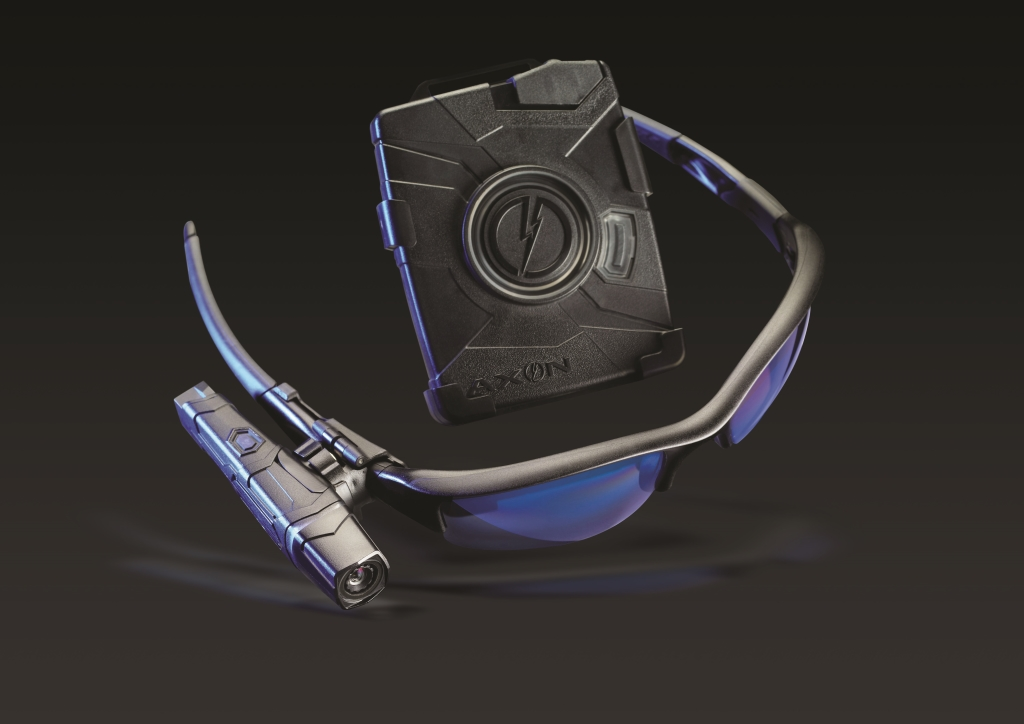Body Cam Bill Passes State Legislature
Bill creates uniform rules for use of body cameras throughout the state.
A Senate bill to help standardize policies regulating the use of police-issued body cameras is working its way through the Capitol, with its finer details being hashed out by the Legislature. Rep. John Spiros (R-Marshfield) explained that the bill doesn’t mandate the use of body cameras, it creates more uniform regulations, particularly when it comes to storing footage.
The bill was a brainchild of a Legislative Council study committee, which Spiros said took place in the summer of 2018. It was reviewed by Republicans and Democrats, with further input from law enforcement. “There was a little bit of back and forth,” Spiros said, as legislators examined its fine points. He emphasized the importance of the bill being discussed in a committee setting, which allows for a round table-like discussion.
The bill passed the Senate on Wednesday and the Assembly on Thursday on voice votes.
Rep. Chris Taylor (D-Madison) wrote in 2019, “We started out on the committee pretty far apart from each other but were able to come together on some really important issues regarding the retention of camera footage and the privacy concerns of individuals.” Taylor was pleased that, “we were able to receive almost unanimous support for this bill to set statewide standards and offer some consistency to law enforcement in the event body cameras are implemented in a community.” She added her name as a co-sponsor of the bill on Thursday, as it was before the Assembly.
Though body cameras are often seen as a crucial means of ensuring officer accountability, storing footage can become a burden for departments. “Video data will take up a lot of space on a server,” Spiros told Wisconsin Examiner, highlighting how to store the footage, and for how long.
Generally, SB-50 requires all body camera data to be stored at least 120 days by the department. If the footage depicts a critical incident, like a search, arrest or shooting, “then it’s going to be stored as long as that case goes on,” said Spiros. The bill also specifically states, “body camera data may not be destroyed at any time after the receipt of an open records request except as provided by current law.”
The open records portion was among the things praised by the Badger State Sheriffs’ Association, which provided testimony in September 2019. “The bill clarifies that in general, data from body cameras are Open Records,” the association highlighted. “However, this bill carefully provides exceptions to ensure the privacy of certain individuals are protected. As the custodians of the record, law enforcement will be required to redact the record to protect the record subject’s identity.”
Privacy considerations were written in the bill. For example, provisions were made for situations where a minor is in the footage, or the individuals are in particularly violent or sensitive positions, like being a state of undress. Under the bill, departments are also required to make their written policies around body cameras available on their respective websites.
Ultimately Spiros, who served in Texas law enforcement back in the 1980’s, feels that the decision to acquire body cameras should be up to the individual department, which has to take into account especially budgetary concerns.
“I know as an officer, I would’ve thought that this would’ve been important,” he said. “Because today, when you see videos online, or on Facebook, or on social media — it’s a piece of a video from somebody taking a video. So you don’t really get the full story.” His hopes are that the bill will be, “something we can get out today to at least put some consistency,” behind departments which use body cameras. “In the future,” Spiros adds, the Legislature may have to make a decision on whether body camera use should be mandated statewide.
Body cameras have maintained a prominent niche in the police reform and accountability debate. Footage captured by the devices are viewed as neutral, not working for nor against the officer or victim. Community trust, however, can be strained when footage of critical incidents are not captured, stored or released expediently to the public.
Crime scenes without body cameras
It’s a debate that is playing out in Wauwatosa, a suburban community in Milwaukee County. Earlier this month, officers of the Wauwatosa Police Department (WPD) shot 17-year-old Alvin Cole, who was involved in an incident at Mayfair Mall. The boy was reported as having brandished a gun in the mall before leaving with friends. He was shot as he ran from officers, who say Cole fired a gun during the chase. According to a TMJ4 report, Wauwatosa officers do not have body cameras. The case is under investigation by the Milwaukee Police Department (MPD).
Two years earlier, WPD chief Barry Weber wrote in the department’s 2014 annual report, “when an officer is involved in a deadly force incident, many people are quick to engage in finger pointing and blaming for what has happened.” Weber noted, “rather than address the problems with our society, the police forces are expected to change.”
The chief argued, “body cameras do not solve the problems that everyone believes they will. It is our job to make good use of the taxpayer funds that are appropriated for the department. We will make decisions based on data, prevailing law, cost and whether we believe this to be a worthwhile tool.”
Accountability is important, but technology can be unreliable. “Technology is not perfect,” said Spiros, “and it can make mistakes.” That being said, “you don’t want to get into a situation where something is deleted, or something is missing,” Spiros noted. “That’s why we tried to put this bill together to put in some type of process.”
Reprinted with permission of Wisconsin Examiner.
Legislation Link - Urban Milwaukee members see direct links to legislation mentioned in this article. Join today






















